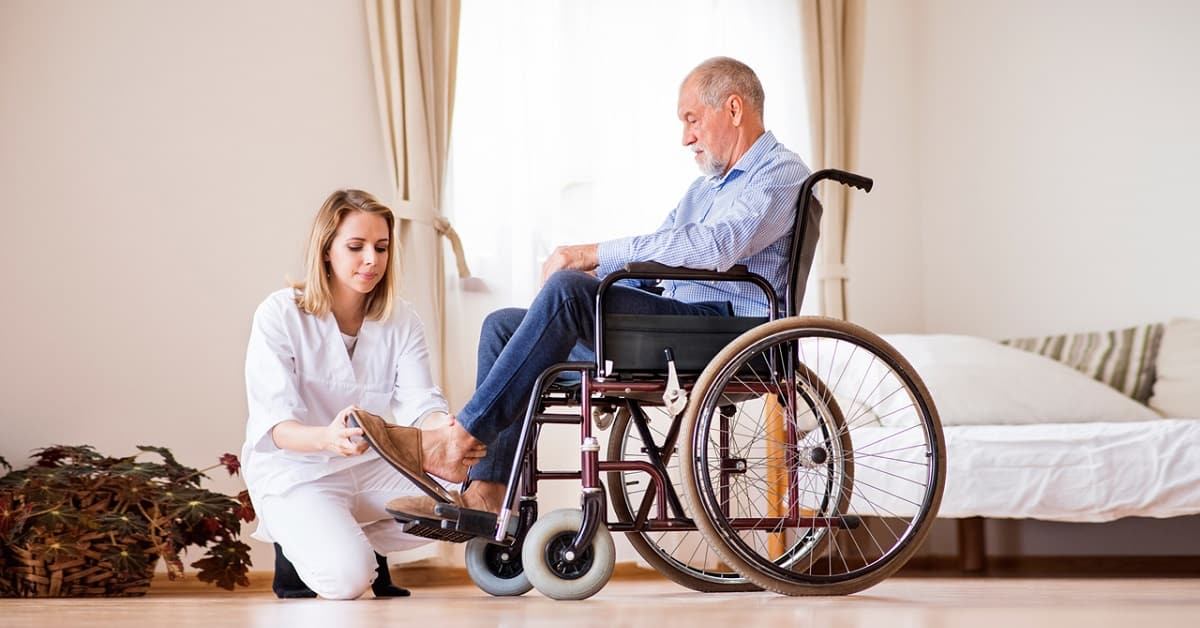The Office of Inspector General (OIG) of the U.S. Department of Health and Human Services (HHS) posted Advisory Opinion No. 10-03 on March 6, 2019, which permits hospitals to provide free, in-home follow up care to discharged patients. The hospital that requested the Advisory Opinion developed a program to provide free, in-home follow-up care to patients with congestive heart failure and chronic obstructive pulmonary disease who are at higher risk for admission or readmission to a hospital.
In order to be eligible for the program, patients must meet the following requirements:
- Patients must be currently admitted as inpatients, or receiving outpatient care and admitted as inpatients within the previous 30 days.
- Clinical nurse leaders must identify patients at high risk for readmissions using risk assessment tools recognized throughout the industry to predict risks of unplanned readmissions or emergency department visits subsequent to hospital discharges.
- Patients must arrange to receive follow up care at outpatient centers.
- Patients must be willing to enroll in the program after consultation with clinical nurse leaders.
- Patients must be discharged to, or reside at personal residences or assisted living facilities, in the hospital’s service area.
Eligible patients receive two visits in their homes from community paramedics each week for approximately thirty days following enrollment. The paramedics are employed by the hospital. The hospital will not bill any federal healthcare program for costs associated with the program.
During home visits, paramedics provide the following services:
- Review patients’ medications.
- Assess patients’ need for follow-up appointments.
- Monitor patients’ compliance with discharge plans of care or patients’ disease management.
- Perform home safety inspections.
- Perform physical assessments; including checking patients’ pulse and blood pressure, listening to patients’ lungs and hearts, checking wounds, performing electrocardiograms, drawing blood and running blood tests using portable blood analyzers, and administering medications.
The OIG analyzed this program and concluded that the free services are illegal remuneration or kickbacks under the federal anti-kickback statute. The OIG also concluded that there is no exception or “safe harbor” that permits hospitals to provide these services even though they are impermissible.
Nonetheless, the OIG said that it would not take enforcement action against the hospital for the following reasons:
- The benefits of the program outweigh any risks of inappropriate patient steering that the anti-kickback statute was designed to prevent.
- If the program works as intended, it is unlikely to lead to increased costs to federal healthcare programs or patients through overutilization or inappropriate utilization.
- Risk that the program will interfere with or skew clinical decision-making is low.
- The hospital does not advertise or market the program to the public, including on its website.
- The scope and duration of services provided by the paramedics appear reasonably tailored to accomplish the hospital’s goals of increasing patient compliance with discharge plans, improving patient health, and reducing hospital inpatient admissions and readmissions.
The Advisory Opinion raises a number of significant questions for home care providers. Perhaps most importantly, the Advisory Opinion seems to completely ignore questions about state licensure and scope of practice. Does the use of community paramedics to provide services in patients’ homes amount to the provision of home care services without a license in those states in which licensure is required? This hurdle may, of course, be overcome if hospitals contract with home health agencies to provide these services instead of hiring paramedics.
Another key question is whether patients in the program are eligible to receive home health or hospice services, but do not receive them because they enroll in this program. What if patients are already receiving home health, hospice and/or private duty services in their homes? The eligibility requirements don’t exclude patients who already receive these types of services. Will community paramedics provided by hospitals and home care staff be required to coordinate the care they provide to patients? If so, how will it be accomplished?
The Advisory Opinion seems to be another example of new interest in providing services in patients’ homes without understanding the home care industry. It’s great to be more valued, but a lack of knowledge remains!
© 2019 Elizabeth E. Hogue, Esq. All rights reserved.
No portion of this material may be reproduced in any form without the advance written permission of the author.
Elizabeth Hogue is an attorney in private practice with extensive experience in health care. She represents clients across the U.S., including professional associations, managed care providers, hospitals, long-term care facilities, home health agencies, durable medical equipment companies, and hospices.


